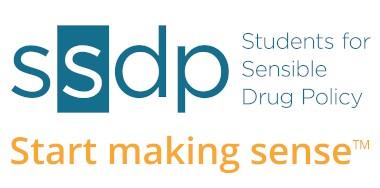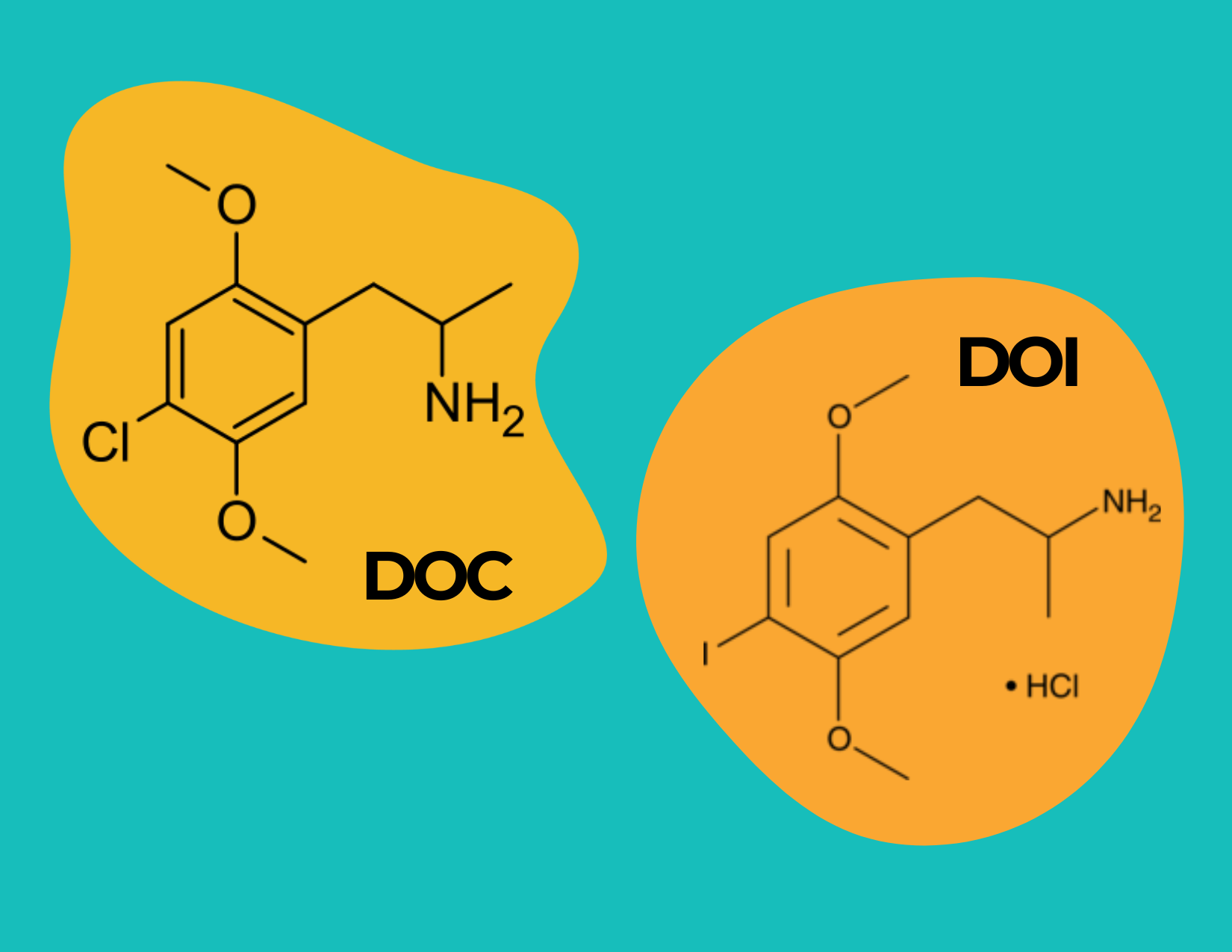
Contact:
Kat Murti
Executive Director
Students for Sensible Drug Policy
kat@ssdp.org
STUDENT-LED NONPROFIT FIGHTS THE DEA IN COURT IN EFFORT TO PRESERVE ACCESS TO VITAL RESEARCH CHEMICALS WITH PROMISING MEDICAL POTENTIAL
Students for Sensible Drug Policy (SSDP) is the Only Drug Policy Organization Actively Working to Prevent the DEA From Scheduling DOI and DOC, Which Would Create Serious Impediments to Potentially Life-Saving Research
[Washington D.C., July 23, 2024] — A nonprofit representing more than 20 graduate students, post-docs, staff scientists, and professors who have been actively involved in research using 2,5-Dimethoxy-4-iodoamphetamine (DOI) and 2,5-Dimethoxy-4-chloroamphetamine (DOC) filed a prehearing statement in the Drug Enforcement Agency (DEA) Administrative Court today challenging the DEA’s attempt to add the research chemicals to Schedule I of the Controlled Substances Act, which defines Schedule I drugs as those with a high potential for abuse, no currently accepted medical use in treatment in the United States, and a lack of accepted safety for use under medical supervision.
“DOI and DOC are important research chemicals with basically no evidence of abuse. We are excited to fight on behalf of SSDP scientists so that they can continue the critical work they are doing with these substances,” said Brett Phelps, Esq, an SSDP alum and legal counsel for the youth-driven drug policy nonprofit.
The Importance of DOI and DOC in Research
DOI and DOC are essential research chemicals in pre-clinical psychiatry and neurobiology whose status as unscheduled compounds has made them de facto tools for researchers studying serotonin receptors.
DOI in particular has been a cornerstone in neuroscience research due to its high selectivity for the 5-HT2A serotonin receptor, a critical component in understanding and potentially enhancing the therapeutic effects of psychedelics. DOI’s use in the lab ushered in a new era of psychiatric drug discovery since it was used to map the localization of an important serotonin receptor in the brain critical in learning, memory and psychiatric disease. Over 80% of the antidepressant drugs on the market affect the serotonin system.
Over the past two decades, DOI has been cited in more than 900 research articles, contributing significantly to our understanding of complex neural mechanisms and offering potential pathways for breakthrough treatments. Recent studies utilizing DOI have shown encouraging results in managing pain and reducing opioid cravings, offering a beacon of hope in the ongoing opioid crisis.
The Flawed DEA Scheduling Process
The DEA’s decision-making process for scheduling these substances appears to lack scientific rigor and transparency. Categorizing these chemicals as Schedule I—indicating that they have no accepted medical use and a high potential for abuse—contrasts sharply with their use in research settings and their minimal recreational usage. This flawed approach undermines the agency’s credibility and impedes critical scientific progress.
Scheduling DOI and DOC as Schedule I substances imposes onerous financial and bureaucratic obstacles on researchers. Obtaining a Schedule I license involves a daunting array of red tape and substantial costs, which can be prohibitive for many research institutions, particularly smaller labs and academic departments.
“DOI has been the most widely used compound to study the role of the serotonin 2 receptor of the last several decades. The serotonin 2 receptor is widely accepted as the primary target of psychedelic drugs—which have seen incredible press coverage as possible treatments for depression—but are also critically involved in learning and memory, and mood. The DEA’s proposed rulemaking to place DOI in Schedule I of the Controlled Substance Act defies scientific study and will make it more difficult for researchers to work on the serotonin 2 receptor,” says Elijah Ullman, a PhD Candidate in Molecular and Systems Pharmacology at Emory University who joined SSDP as a high school student in 2012 and now serves as the chair of SSDP’s Science Policy Committee.
“There is a plethora of evidence demonstrating that DOI does not have significant potential for abuse yet the DEA continues on an anti-scientific tirade of ignoring facts,” says Ullman.
SSDP’s Legal Battle Against the DEA
Ullman and SSDP’s Science Policy Committee have been leading the effort to save DOI and DOC research since April 2022, when the DEA announced their intention to move the two psychedelic research chemicals that have been used safely for decades to Schedule I of the Controlled Substances Act—effectively blocking research. Within weeks, SSDP’s Science Policy Committee—a group of PhD students and other researchers who are fighting back against the War on Drugs—leapt into action, demanding a hearing. After extensive legal back-and-forth, the DEA backed down in August 2022, withdrawing their proposal.
Unfortunately, the fight was not over. On December 23, 2023, perhaps imagining the move would go unnoticed during the end-of-year holiday season, the DEA again proposed scheduling DOI and DOC. On January 4th, 2024, SSDP again filed a request for a hearing challenging this move, citing the lack of substantive evidence and the negative impact on research. At the same time, Robert Rush, an attorney with a practice based in Denver, CO, who represents three independent researchers, also filed a petition to challenge the DEA’s scheduling. SSDP is now working hand-in-hand with Rush, who is spearheading the legal strategy for the case.
“The DEA’s attempt to classify DOI, a compound of great significance to both psychedelic and fundamental serotonin research, as a Schedule I substance exemplifies an administrative agency overstepping its bounds,” says Rush. “The government admits DOI is not being diverted for use outside of scientific research yet insists on placing this substance in such a restricted class that it will disrupt virtually all current research. In light of recent Supreme Court decisions, we look forward to aggressively fighting to stop this injustice.”
Significance of the Case
Recent Supreme Court decisions call into question the extent of administrative agency power. SSDP’s efforts to keep DOI and DOC from being added to the Controlled Substances Act could set important precedents with lasting impacts.
“DOI and DOC could lead to significant breakthroughs in treating some of today’s most challenging health issues, but this is not just about keeping two chemical compounds available for research; it’s about preserving the integrity of scientific inquiry, advancing medical treatment, and ultimately, impacting lives positively,” says SSDP Executive Director Kat Murti. “The DEA’s current path is a disservice to science, health, and the principles of justice and compassion. Let’s stand together to advocate for sensible drug policy and ensure that potential treatments can reach those in need without undue government interference.”
With chapters on campuses and in communities across the country, Students for Sensible Drug Policy (SSDP) is the largest national youth-led network dedicated to ending the War on Drugs. Our national staff, Board of Directors, chapters, and alumni work together to replace the disastrous War on Drugs with policies rooted in evidence, compassion, and human rights, at a grassroots level.
###
For more information, please visit: https://ssdp.org/dont-block-psychedelic-research/



